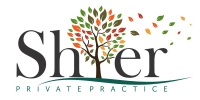Phobia Treatment Scottsdale | Phoenix
Psychologists and psychiatrists at Shier Private Practice in Scottsdale, AZ specialize in the treatment of specific phobias. Our private outpatient clinic offers a comprehensive psychiatric/medical assessment and treatment plan. Treatment may include medications, behavioral therapies or a combination of treatments.
What Is a Specific Phobia?
 Specific phobias are a form of anxiety disorder marked by intense fear or anxiety surrounding a specific object or situation. When exposed to the phobic object or situation, an individual may experience feelings of imminent danger or doom, heart palpitations, sweating, trembling, shortness of breath, chest pain or discomfort, and/or other symptoms similar to those of a panic attack. For this reason, specific phobias have a significant impact on daily functioning and quality of life due to excessive avoidance of the phobic object or situation. Individuals with specific phobias may experience limited work efficiency, reduced self-esteem or interpersonal relationship strains. Specific phobias are generally associated with one of five categories: animal, natural environment, situational, blood/injection/injury, and other. Individuals with specific phobias often recognize that their fear surrounding the object is irrational, but feel they are unable to stop it.
Specific phobias are a form of anxiety disorder marked by intense fear or anxiety surrounding a specific object or situation. When exposed to the phobic object or situation, an individual may experience feelings of imminent danger or doom, heart palpitations, sweating, trembling, shortness of breath, chest pain or discomfort, and/or other symptoms similar to those of a panic attack. For this reason, specific phobias have a significant impact on daily functioning and quality of life due to excessive avoidance of the phobic object or situation. Individuals with specific phobias may experience limited work efficiency, reduced self-esteem or interpersonal relationship strains. Specific phobias are generally associated with one of five categories: animal, natural environment, situational, blood/injection/injury, and other. Individuals with specific phobias often recognize that their fear surrounding the object is irrational, but feel they are unable to stop it.
In the United States, the 12-month prevalence rate for specific phobias is 7%-9%. While specific phobias can occur at any age, they seem to peak between the ages of 7-11, with the mean age of onset being 10 years old. Specific phobias do not occur as frequently in older adults.
What Are the Symptoms of Specific Phobias?
The DSM-5 Criteria for specific phobias are as follows:
- Marked fear or anxiety about a specific object or situation (i.e. flying, heights, animals, injections, blood)
- The phobic object or situation almost always provokes immediate fear or anxiety
- The phobic object or situation is actively avoided or endured with intense fear or anxiety.
- The fear or anxiety is out of proportion to the actual danger posed by the specific object or situation and to the sociocultural context
- The fear, anxiety, or avoidance is persistent, typically lasting for 6 months or more.
- The fear, anxiety, or avoidance causes clinically significant distress or impairment in social, occupational, or other important areas of functioning.
- The disturbance is not better explained by the symptoms of another mental disorder.
What Is the Cause of Specific Phobias?
While a specific cause of specific phobias has not been defined, there is speculation that specific phobias may develop due to traumatic experiences, genetics, environment, and/or changes in brain functioning during adolescence. Risk factors include age, familial presence of anxiety or specific phobia, temperament, and transmission of information about traumatic experiences.
How Are Specific Phobias Diagnosed?
The diagnosis of specific phobia requires a thorough biopsychosocial psychiatric and medical assessment to confirm the diagnosis and rule out other psychological or medical conditions. During a clinical interview, the doctor will ask questions about symptoms as well as medical, social and psychiatric history.
Specific Phobia Treatment
Psychotherapy is the most common form of treatment for individuals with a specific phobia. Cognitive behavioral therapy (CBT) helps individuals minimize emotional responses to phobic objects or situations by encouraging changes in behaviors. Exposure therapy is a form of CBT that is considered particularly successful in the treatment of specific phobias.
How to Cope
- Self-care and basic needs – Make sure you are taking care of yourself and getting plenty of sleep.
- Eat well and get exercise – Maintaining a healthy diet and exercising can provide significant reduction in anxiety surrounding specific phobias.
- Stress reduction – Set personal limits on requests that may increase your overall stress levels.
- Relaxation and meditation – Participating in mindfulness meditation or deep breathing exercises can help you learn to control your breathing and ease your muscle tension when you are feeling stressed or anxious surrounding a specific phobia.
- Avoid drugs and alcohol – Avoid self-medicating as drugs and alcohol increase symptoms of anxiety as they wear off, and therefore are maladaptive in coping with specific phobias.
- Seek support from friends and family- Avoid long periods of social isolation as this may worsen symptoms of anxiety surrounding your specific phobia.
- Join a support group – Join a support groups. Support groups will help you meet others with similar experiences, share coping strategies, and gain a sense empowerment and connection.
Last update: February 25, 2019
The content on this website is not intended to be a substitute for professional medical advice, diagnosis, or treatment. Always seek the advice of your physician or other qualified health provider with any questions you may have regarding a medical condition.
